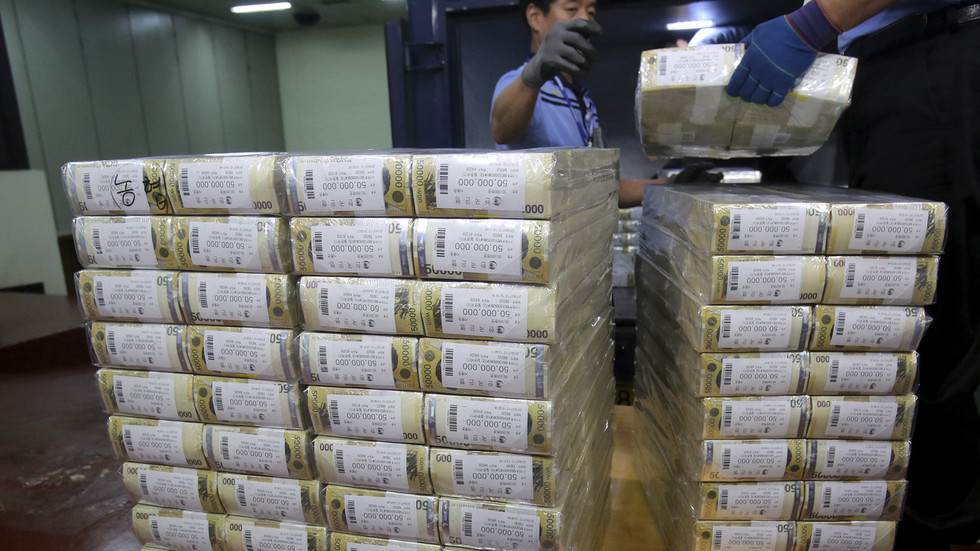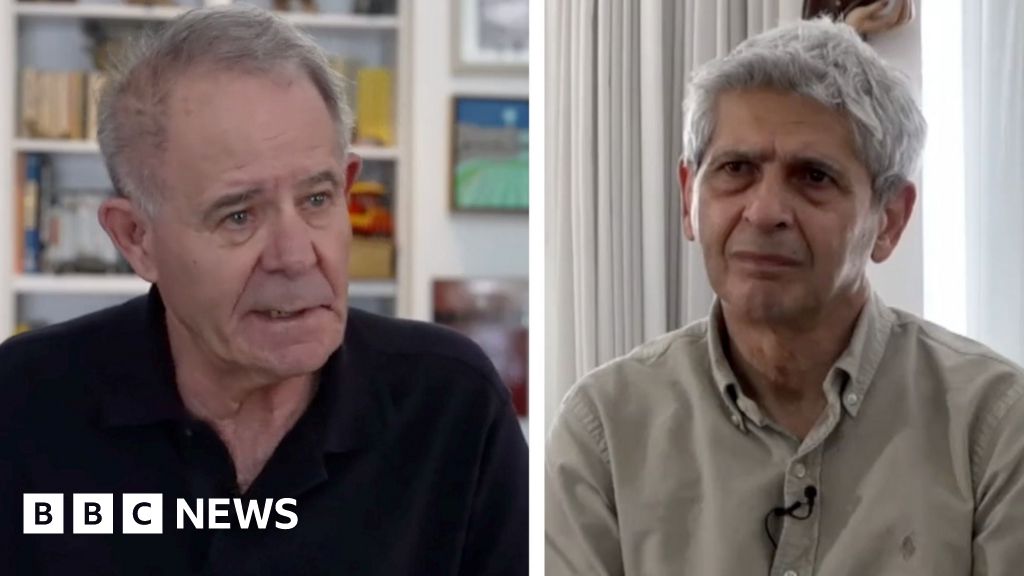
Donald Trump and Kevin Hassett, speaking to CNBC (Image: GETTY/CNBC)
Donald Trump’s White House has hinted that tariffs could be cut below 10% for countries which strike favourable trade deals with the United States, signalling a major shift in Washington’s trade stance. Kevin Hassett, Director of the National Economic Council, told CNBC the much-touted 10% tariff baseline - applicable in the case of the UK - was not set in stone.
He said: “We’ve seen that 10% is a level many have been pushed to, but if countries make compelling offers, they could see tariffs stay at that level – or even come in lower. If they respond with retaliation, or continue to shut out US goods, then rates will go up.” Mr Hassett’s admission marks a significant departure from Mr Trump’s earlier insistence that 10% was a firm “floor” for tariffs, although he had previously hinted at “a couple of exceptions.”

Sir Keir Starmer hails the trade deal signed earlier this month (Image: Getty)
Mr Hassett’s remarks suggest those exceptions may be far broader than expected.
The comments come amid fresh scrutiny over the landmark trade deal the US struck with the UK in May.
That agreement included the elimination of 25% tariffs on British steel and aluminium exports and a cap of 10% tariffs on up to 100,000 UK-made vehicles annually.
In exchange, the UK agreed to increased imports of American agricultural products such as 13,000 metric tonnes of tariff-free beef and 1.4 billion litres of ethanol, while maintaining its food safety standards.

European Commission President Ursula von der Leyen (Image: Getty)
The deal also covers streamlined customs procedures, greater cooperation on critical minerals, and enhanced access for US firms to the UK’s procurement market.
However, Mr Hassett’s comments will prompt questions about whether Sir Keir Starmer may have agreed to less favourable terms too early, potentially locking itself into a higher tariff baseline.
Mr Hassett sought to dismiss business leaders’ warnings that tariffs were harming the US economy, describing such concerns as tactical manoeuvres. He said: “Everyone’s trying to make it out like a tiny tariff is a catastrophe.”
The flexibility in tariff policy follows Mr Trump’s decision to postpone a planned 50% tariff hike on EU imports after a “warm” phone call with European Commission President Ursula von der Leyen.
Invalid email
We use your sign-up to provide content in ways you've consented to and to improve our understanding of you. This may include adverts from us and 3rd parties based on our understanding. You can unsubscribe at any time. Read our Privacy Policy
Joseph Stiglitz has 'strong reservations' about US-UK trade deal
Mr Hassett likened the conversation to a “friend-to-friend” exchange, suggesting tariff threats are often used more as leverage than fixed policy.
Markets responded positively to the apparent de-escalation. On Wall Street, the Dow Jones Industrial Average rose 1.8%, the S&P 500 climbed 2%, and the Nasdaq gained 2.5%. London’s FTSE 100 added 0.7%, while the FTSE 250 rose by 1.1%.
Investor Joe Saluzzi, co-head of equity trading at Themis Trading, commented: “Mr Trump’s negotiating style is well known – come out swinging, then soften.”
The evolving tariff stance highlights ongoing uncertainty for trading partners and domestic industries alike. As the White House signals a willingness to reward countries that open their markets, the real test will be how this flexibility translates into concrete trade deals, especially for key allies such as the UK.
The implications extend beyond tariffs. The US-UK deal’s focus on critical minerals cooperation is vital as both nations compete globally for access to resources essential to advanced technologies and green energy.
For Britain, the challenge will be ensuring its trade agreements remain competitive in a fluid US trade policy environment.
Without further negotiation, the UK could face relatively higher tariffs compared to others securing more flexible deals.
As Washington recalibrates its approach, businesses and governments must prepare for a trade landscape where tariffs are no longer fixed but contingent on ongoing diplomatic and economic bargaining.

 1 month ago
12
1 month ago
12










 English (US) ·
English (US) ·